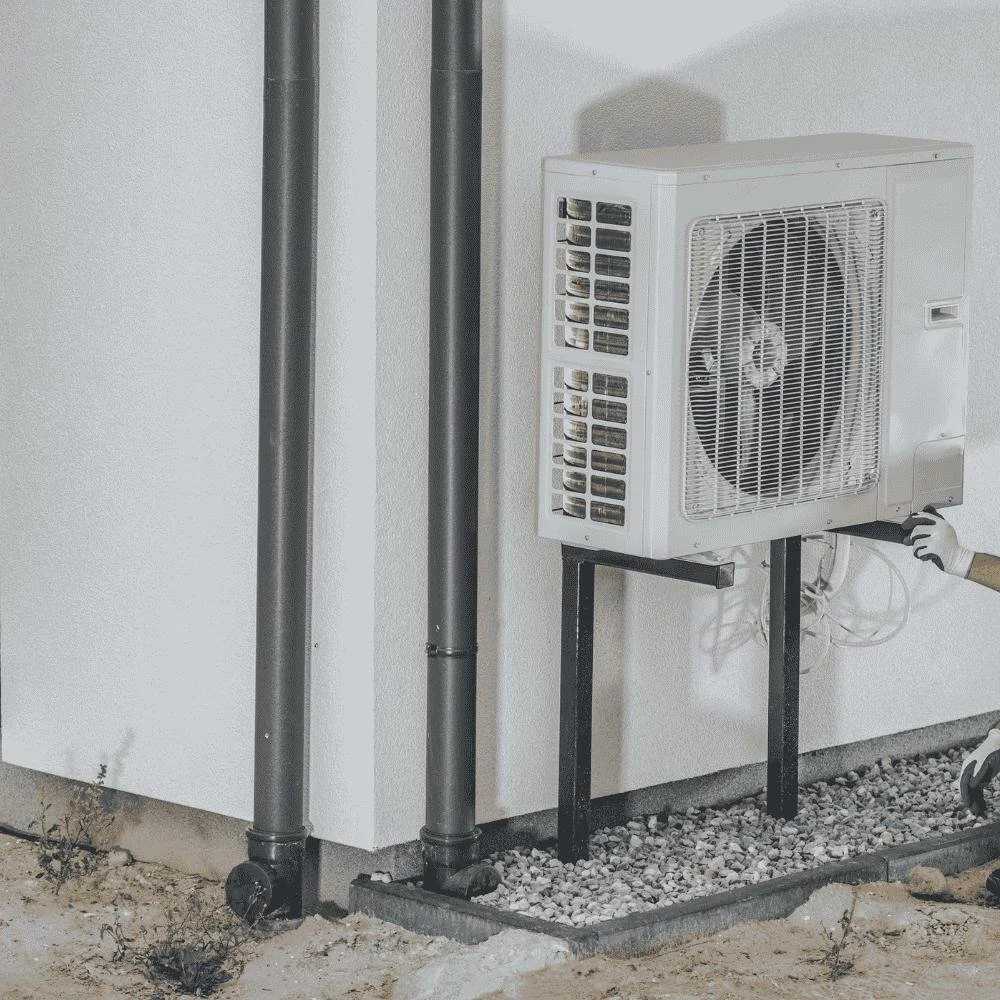Why Heat Pump Installation Is a Wise Choice for Sustainable Home Heating and Cooling
A heat pump offers an energy-efficient, eco-friendly alternative to traditional heating and cooling methods.
Homeowners are becoming more aware of their environmental impact and the rising cost of energy. As more people seek sustainable ways to heat and cool their homes, heat pumps have emerged as one of the best solutions. A heat pump offers an energy-efficient, eco-friendly alternative to traditional heating and cooling methods. Let's explore why heat pump installation is a wise choice for homeowners looking to lower their carbon footprint while maintaining comfort and saving on energy bills.
Energy Efficiency and Reduced Carbon Footprint
One of the star features of heat pumps is their impressive energy efficiency. Unlike traditional heating systems, which generate heat through combustion or electrical resistance, heat pumps transfer heat from the outside air (or ground) into your home. During the winter, a heat pump removes any available heat from the outdoor air and transfers it to the indoor air. In the summer, it does the reverse, moving heat out of the house to keep things cool.
Because heat pumps move heat instead of creating it, they use less energy than customary heating and cooling systems. As a result, they can reduce a home's energy consumption by up to 50%. This energy efficiency lowers greenhouse gas emissions and the overall carbon footprint of your house, making a heat pump a sustainable choice. With the rising demand for renewable energy solutions, installing a heat pump aligns with efforts to minimize environmental impact and substantially lower reliance on fossil fuels.
Lower Energy Bills
A heat pump installation isn't just good for the planet; it's also great for your wallet. The energy efficiency of heat pumps directly creates lower monthly utility bills. While the initial cost of installation may be higher than traditional systems, the long-term savings are well worth it.
Heat pumps are able to offer both heating and cooling so that they can replace separate systems like furnaces and air conditioners. This dual function means fewer systems to maintain, fewer repairs, and reduced energy usage overall. You'll save on both equipment and operating costs by having one system that does it all. Over time, the energy savings from utilizing a heat pump can more than offset the installation costs, giving homeowners a solid return on investment.
Temperature Control with Precision
One of the often-overlooked benefits of heat pump installation is the precise temperature control it offers. Traditional heating systems tend to produce heat in a less controlled way, often causing temperature fluctuations throughout the home. This can generate uneven heating, with some rooms feeling too hot while others stay chilly. Heat pumps, on the other hand, provide consistent, even temperatures. They maintain the set temperature throughout your home, avoiding hot or cold spots.
With the ability to adjust the temperature in small increments, a heat pump helps create a more comfortable and balanced environment. Whether it's the dead of winter or the height of summer, you can enjoy steady and cozy indoor temperatures all year round without the need to constantly fiddle with thermostats.
A Dual-Purpose System
One of the most appealing aspects of heat pump installation is that it serves both heating and cooling needs. In the past, homeowners had to install separate systems for heating and cooling, which required more space, more maintenance, and higher utility bills. With a heat pump, you can remove the need for multiple units.
In the winter, the heat pump works as a heater, providing warmth by extracting heat from the outdoor air. During the summer, it switches gears, acting as an air conditioner by pulling warm air out of your home. Having one system to manage both functions not only saves space but also simplifies maintenance and shrinks costs.
Less Maintenance, Fewer Repairs
Another advantage of heat pump systems is their relatively low maintenance as opposed to traditional heating and cooling systems. While any HVAC system requires some level of maintenance to operate efficiently, heat pumps generally need less attention. Because they don't rely on combustion or a fuel-burning process, they avoid the wear that comes with older systems, such as furnaces or boilers.
Additionally, heat pumps don't have as many parts that can wear out. There are fewer filters to replace, and you won't need to deal with the risks associated with gas leaks or carbon monoxide buildup, making them safer and easier to maintain. Regular maintenance, such as cleaning filters and checking refrigerant levels, helps keep a heat pump running smoothly and extends its lifespan.
Sustainability Meets Comfort
Installing a heat pump allows homeowners to strike the perfect balance between sustainability and comfort. While many eco-friendly solutions can feel like a trade-off in terms of comfort, heat pumps manage to provide both. The advanced technology behind heat pumps ensures that your home stays comfortable, even in extreme temperatures. They're designed to perform well in a wide range of climates, making them a solid option for both hot and cold weather conditions.
Whether it's a scorching summer day or a frosty winter night, a heat pump will keep your home at a pleasant temperature without requiring a lot of energy. Their ability to provide both heating and cooling means you can rely on the same system year-round without having to swap out units or worry about frequent repairs.
Government Incentives and Rebates
To further incentivize homeowners to invest in sustainable technologies, many regions offer rebates or tax incentives for heat pump installation. These incentives can offset the primary costs of installation, making it even more affordable to choose a heat pump over conventional systems. These rebates are part of an ongoing effort to encourage green energy solutions and reduce reliance on fossil fuels. By taking advantage of these financial motivations, you can make the transition to a heat pump even more cost-effective.
Long-Term Investment
Heat pump installation isn't just a trend—it's a smart, long-term investment. As energy prices increase and environmental concerns become more pressing, the demand for energy-efficient, sustainable home solutions will only increase. Heat pumps offer a viable solution for homeowners looking to lower their energy consumption, lower their carbon footprint, and enjoy comfortable temperatures year-round.
While the initial installation costs can be higher than usual heating and cooling systems, the long-term savings and environmental benefits make a heat pump a smart choice. Over time, you'll not only save money on your energy bills but also contribute to a more sustainable future.
Conclusion
Heat pump installation is a perfect choice for homeowners seeking an energy-efficient, sustainable, and cost-effective solution for both heating and cooling. These systems reduce energy consumption, lower utility bills, and provide consistent comfort throughout the year. With their ability to deliver heating and cooling from a single system, heat pumps simplify your home's climate control while reducing maintenance needs and extending system longevity. If you're looking for a way to boost your home's energy efficiency and reduce your carbon footprint, a heat pump is a smart investment for today and the future.

